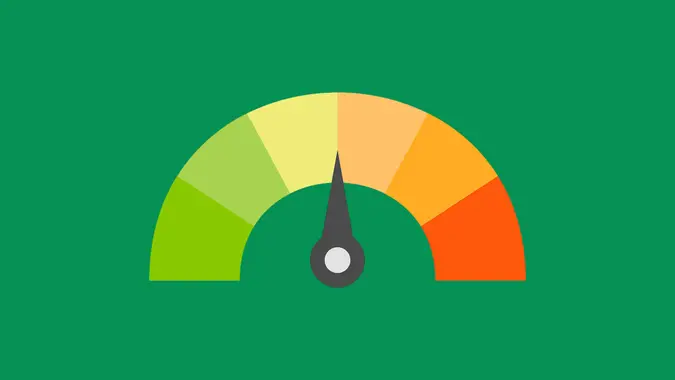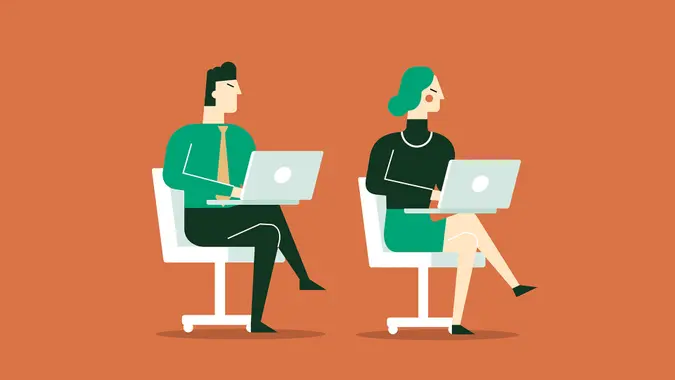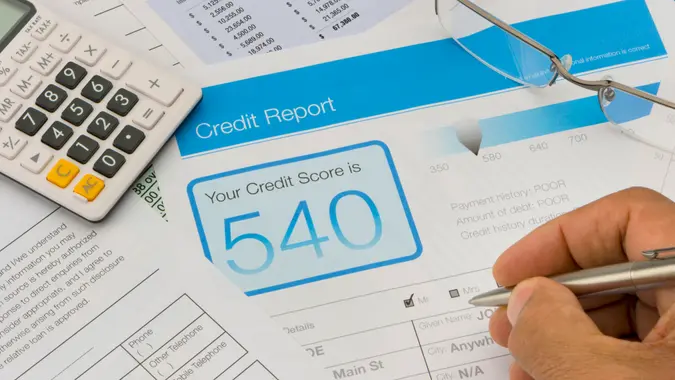What Happens When Bills Go Into Collections?

Commitment to Our Readers
GOBankingRates' editorial team is committed to bringing you unbiased reviews and information. We use data-driven methodologies to evaluate financial products and services - our reviews and ratings are not influenced by advertisers. You can read more about our editorial guidelines and our products and services review methodology.

20 Years
Helping You Live Richer

Reviewed
by Experts

Trusted by
Millions of Readers
When you don’t pay a bill for a long time, the company you owe might decide to give up on trying to collect the debt themselves.
Instead, they’ll either hire a collection agency to chase the payment or sell the debt outright to them. That’s when you’ll start hearing from the collection agency instead of the original company.
What Does a Collection Agency Do?
The collection agency’s job is to get you to pay. They might call you, send letters, or offer a settlement where you pay less than you owe. This process is stressful for many people, but understanding what’s happening can help you take control.
How Long Does It Take for a Bill to Go to Collections?
Generally, companies wait somewhere between 60 and 180 days before they send your unpaid bill to collections. The exact timeline depends on the type of debt and the policies of the company you owe. For example, medical bills and credit cards might have different timelines.
The key takeaway here? The sooner you act on a missed payment, the easier it is to avoid collections altogether. If you’re struggling to pay a bill, it’s often better to reach out to the company early and see if they can offer help before things escalate.
What Happens to Your Credit When a Bill Goes to Collections?
Once a bill lands in collections, it’s probably going to show up on your credit report. And unfortunately, that’s not good for your credit score.
Collection accounts damage your payment history, which is the biggest factor in your credit score. A fresh collection account can cause a significant drop in your score. Over time, the impact of collections lessens, but as long as the account is there, it can make getting approved for loans or new credit cards harder.
Typically, collection accounts stay on your credit report for seven years from the date you missed your first payment.
What Debt Collectors Are Legally Required to Do
If you start getting calls or letters from debt collectors, it helps to know they have rules to follow. Under the Fair Debt Collection Practices Act (FDCPA), collectors must:
- Clearly identify themselves and explain the debt, including who you owe and how much.
- Treat you fairly — harassment, threats, or lies are illegal.
- Give you the option to dispute the debt. If you think they have the wrong person or the wrong amount, you can ask for verification.
If you dispute the debt in writing within 30 days of first contact, the collection agency has to stop collecting until they verify the debt.
What Should You Do If Your Bill Goes to Collections?
Ignoring the situation won’t make it go away. In fact, it can make things worse. Instead, take these steps to get ahead of it.
1. Confirm the debt is accurate. Mistakes happen more often than you think, so make sure the amount is right and that it’s actually your debt.
2. If it’s correct, decide how you want to handle it. You have a few options:
- Pay the full amount you owe
- Negotiate a settlement to pay less than the full balance
- Set up a payment plan with the collector
3. Make sure you get the terms in writing before sending any money. This protects you in case there’s a misunderstanding later.
Paying off a collection account won’t erase it from your credit report, but it may help your credit, especially if newer scoring models are used by lenders.
Can You Remove Collections from Your Credit Report?
It’s possible to get a collection account removed, but it depends on the situation.
- Some newer credit scoring models ignore paid collections, which can help your score even if the account stays on your report.
- You can also ask the collection agency for a “pay for delete” arrangement, where they agree to remove the account if you pay it. Just know they’re not required to do this, so it’s not always an option.
- If the collection account is there by mistake, you can dispute it with the credit bureaus. If your dispute is successful, the account will be removed.
Otherwise, collection accounts drop off your credit report automatically after seven years.
How to Avoid Collections in the Future
Once you’ve dealt with collections, the goal is to avoid going through it again. Here’s how to stay on track:
- Pay your bills on time. Setting up autopay or reminders can make this easier.
- If you’re struggling financially, call your creditor before you fall behind. Many companies offer hardship programs or payment plans.
- Keep an eye on your credit report. You can catch issues early by regularly checking your credit report.
FAQ
- What does it mean if a bill goes to collections?
- It means the original company handed your unpaid debt to a collection agency, and they’re now responsible for collecting payment from you.
- How bad does a collection hurt your credit?
- Collections can significantly lower your credit score, especially if the debt is recent. Over time, the impact becomes less severe, but it can still affect your ability to get approved for credit.
- Can you stop a bill from going to collections?
- Yes. If you act early and contact your creditor to make arrangements, you might prevent the account from being sent to collections.
- Do collections ever go away?
- Yes. Collection accounts usually fall off your credit report seven years after the date you first missed the payment that led to collections.
Our in-house research team and on-site financial experts work together to create content that’s accurate, impartial, and up to date. We fact-check every single statistic, quote and fact using trusted primary resources to make sure the information we provide is correct. You can learn more about GOBankingRates’ processes and standards in our editorial policy.
 Written by
Written by  Edited by
Edited by 






















